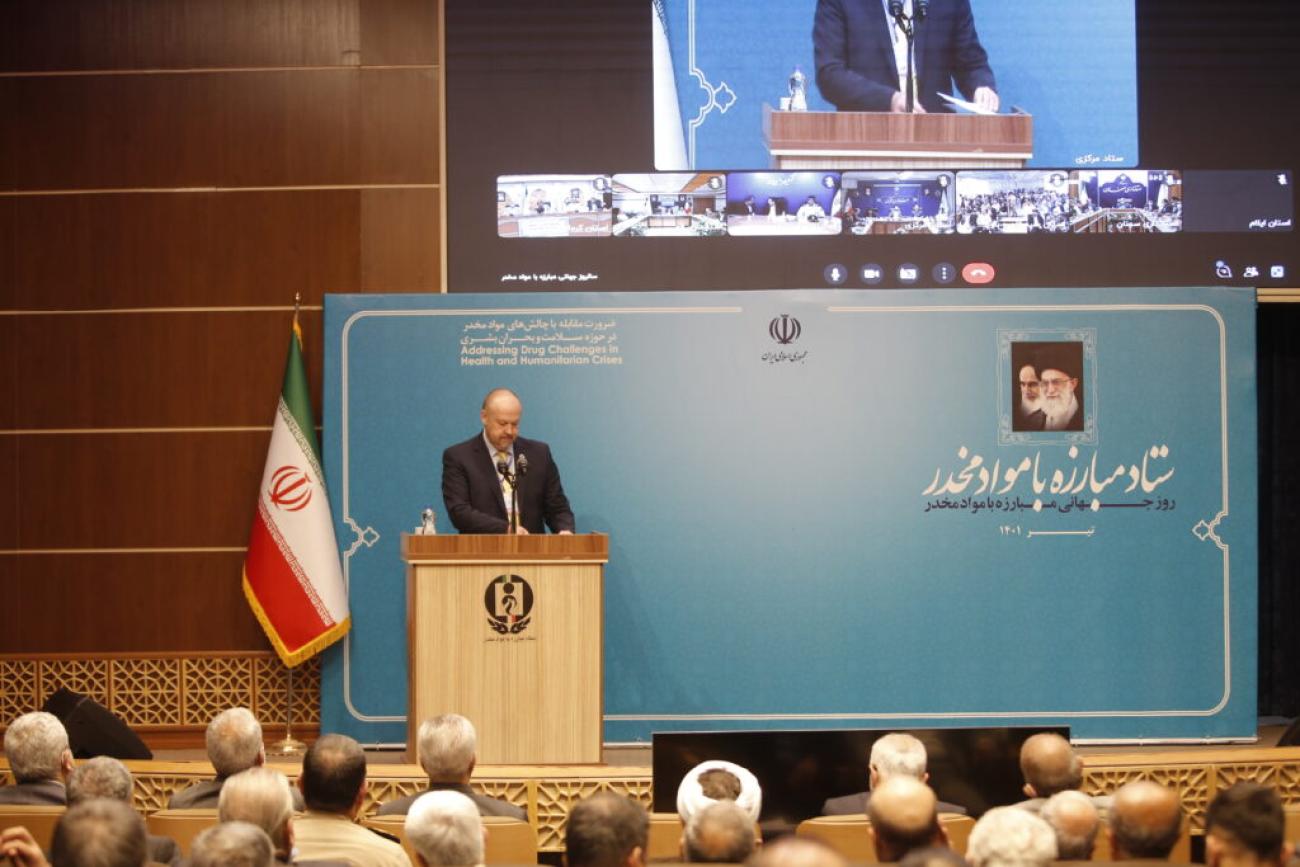Fighting Drugs Together

Commemoration of the International Day against Drug Abuse and Illicit Trafficking in Iran.
Tehran, 26 June 2022 – Late June, President Ebrahim Raisi, Ministers of Interior, Sports and Youth, and Education, national drug experts, police as well as UN officials participated in a high-level event to commemorate the International Day Against Drug Abuse and Illicit Trafficking. Co-hosted by the Drug Control Headquarters (DCHQ) in cooperation with The UN Office for Drugs and Crime (UNODC) participants had frank discussions and exchanges about the current challenges and what needs to be done to fight the increasing production and distribution of drugs.
During the event, where local and regional challenges as well as support for the 280 million people using drugs worldwide were debated, high level UN positions on the serious problems were shared. In a message from the UNODC Executive Director Ghada Waly, it said:
“At the UN Office on Drugs and Crime, we are committed to providing care and support to the people affected by illicit drugs, no matter the circumstances.
Everyone has a role to play, from governments to civil society to individuals, in bringing the necessary attention and resources to this issue, and we stand ready to work with all of you.”
Mr. Momeni who is the Secretary-General of DCHQ highlighted Iran's long-lasting endeavors on drug control and seizures and drew particular attention to Afghanistan: "The area under cultivation, production, and drug trafficking in Afghanistan has increased seriously in the last 20 years." He then went on to emphasize the shared responsibilities of the international community underlining that it should “try to replace the opioid cultivation and keep the human society away from lead to addiction."
The Iranian President Dr. Ebrahim Raisi emphasized that the International Day Against Drug Abuse and Illicit Trafficking is very important and expressed a clear wish that the international community should do more. President Raisi found that international assistance in drug control is not proportionate to the costs paid by the Government of Iran. The president called on the UN to make the challenges of drugs a high priority in Iran and to increase funding: "we do not have access to many tools and technologies needed to fight drugs due to sanctions."
Apart from reading the official UN statements, the UNODC Representative, Mr. Alexander Fedulov, gave a comprehensive overview of the UN’s drug-related activities in Iran in support of the government and the DCHQ. This included border management and the fight against illicit trafficking, drug prevention, and treatment, care for people living with HIV, as well as sustainable job creation. Fedulov emphasized the importance of building a solid partnership with Iran.
The Minister of Interior, Mr. Ahmad Vahidi, also emphasized the principles of common and shared responsibility when using the economy of neighboring Afghanistan as an example. Despite the decade-long presence of foreign states the economy has continued to be entirely dependent on drug revenues. "Without any baggage and support from international institutions, we are at the forefront of the fight against drugs," the minister said, promising that Iranian law enforcement will continue to counter drug trafficking.
Two days after the Tehran event, during the presentation of the UN World Drug Report 2022 in Vienna, ODC Executive Director Ghada Waly, said: “Care means meeting the obligations of shared responsibility by strengthening international cooperation against drug trafficking, as well as associated crimes, corruption, terrorism, and illicit flows.
International cooperation is also needed to support alternatives to illicit drug cultivation that enable impoverished communities to develop livelihoods that are sustainable and environmentally responsible.”




